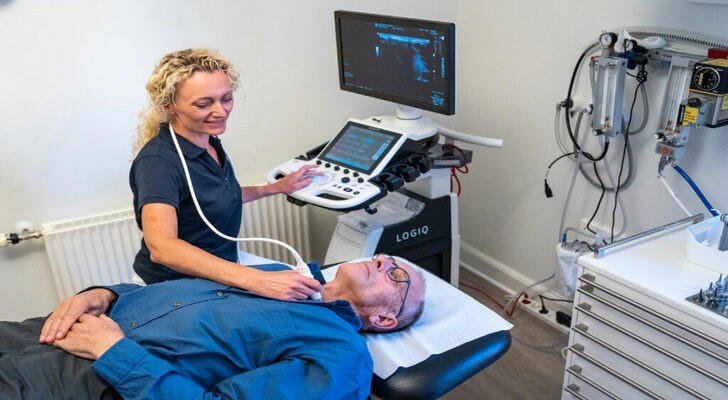Understanding Health Screenings: Your Key to Preventive Care
Health screenings form a vital part of preventive medicine that often gets overlooked. While busy lives can make it easy to ignore, regular health checkups can truly change the course of your health. This article focuses on the critical importance of health screenings, particularly in the areas of cancer detection and cardiovascular health assessments.

The Importance of Health Screenings
Health screenings take a proactive stance in identifying potential health issues before they become serious. According to the Centers for Disease Control and Prevention (CDC), nearly 80% of chronic diseases could be prevented through timely checkups and appropriate lifestyle modifications. Early detection is especially beneficial for issues like cancer and heart disease, which can develop silently without noticeable symptoms.
• The Statistics Speak: Research indicates that approximately 1 in 3 women and 1 in 2 men will be diagnosed with cancer during their lifetime. However, the good news is that early detection through screenings can significantly improve survival rates. For instance, breast cancer screenings can lead to a 20% reduction in mortality rates when detected early.
Cancer Screenings: A Lifesaver
Cancer screenings are among the most critical aspects of preventive health care. These screenings include various tests designed to detect cancer early, often before any symptoms appear. Here are some widely recommended cancer screenings:
• Mammograms:
For women, mammograms are essential for early breast cancer detection. The American Cancer Society advises that women should begin annual screenings at the age of 45, while those at higher risk might require earlier consultations. Regular mammograms can reduce breast cancer mortality by 15-20%.
• Colorectal Cancer Screening:
Colorectal cancer ranks as the second leading cause of cancer-related deaths in the United States. Screenings like colonoscopies are recommended to start at age 45. Studies show that screening can lower the risk of dying from colon cancer by 68%.
• Prostate Cancer Screening:
For men, the prostate-specific antigen (PSA) test helps catch prostate cancer early. Men should discuss the risks and benefits of this test with their healthcare provider to make informed decisions regarding their prostate health.
Cardiovascular Health Assessments: A Must-Do
Cardiovascular disease (CVD) remains a leading cause of death globally. Regular assessments of heart health can provide valuable insights into cardiovascular risk and help identify potential issues early on. Here’s what these screenings typically include:
• Blood Pressure Checks:
High blood pressure (hypertension) can lead to serious complications, such as heart attacks and strokes. Monitoring blood pressure regularly can help catch hypertension early. The CDC reports that nearly 47% of adults have hypertension, with many unaware of their condition.
• Cholesterol Level Tests:
Elevated cholesterol levels significantly increase the risk of heart disease. A simple blood test can determine cholesterol levels, guiding necessary dietary changes and other interventions. The American Heart Association suggests adults get their cholesterol checked every 4-6 years.
• Blood Sugar Testing:
Diabetes is closely linked to cardiovascular health. Regular monitoring of blood sugar levels can help identify prediabetes or diabetes early. According to the CDC, about 34.2 million Americans have diabetes, and many remain undiagnosed. Early detection is crucial for preventing complications linked to diabetes, including heart disease.

The Holistic Benefits of Health Screenings
Health screenings are not just about diagnosing existing health issues; they also offer diverse holistic benefits. Regular checkups encourage healthy lifestyle changes and empower individuals to take control of their health. Engaging with healthcare providers regarding screening results can lead to:
• Personalized Health Plans: Based on screening outcomes, healthcare professionals can create tailored health plans that may include dietary recommendations, exercise routines, or medication regimens specific to individual needs.
• Increased Awareness: Gaining a better understanding of one’s health status can motivate individuals to pursue healthier choices, fostering an overall culture of wellness.
• Peace of Mind: Regular screenings can relieve anxiety related to unknown health issues, providing clearer insights into one’s health status and encouraging proactive management.
Conclusion
Health screenings are a fundamental aspect of a proactive approach to health care. By placing an emphasis on early detection and prevention, screenings can dramatically improve health outcomes for conditions such as cancer and cardiovascular disease. Regular checkups and open conversations with healthcare providers not only enhance personal health understanding but also facilitate the adoption of healthier habits.
Neglecting health screenings can lead to missed opportunities for early detection and effective management. Investing time in preventive care today is a wise choice, paving the way to a healthier and more fulfilling tomorrow. Prioritizing health screenings not only protects individual health but also leads to a vibrant, active lifestyle.
